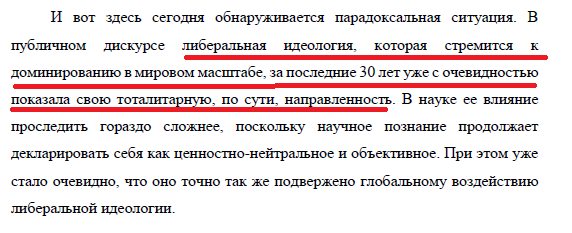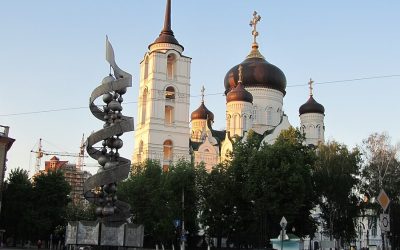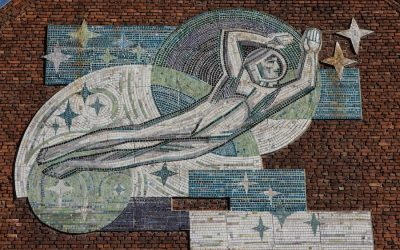Why unapologetic opponents are rejecting “wokeness,” “cancel culture,” and other 21st-century phenomena.
Dmitry Dubrovsky
Photo: Post-industrial societies are especially sensitive to minority groups. Photo by Dyana Wing So on Unsplash
“Wokeness” has long been a controversial topic in the Russian public sphere, primarily taking the form of heated debates about #МеToo and #BlackLivesMatter.
The alarmist tone taken by principled opponents of cancel culture has led them to use the term “totalitarianism” when referring to wokeness as a whole. British philosopher Edward Skidelsky states outright that the “political correctness” movement is behind the “recent rise to prominence” of totalitarianism.
St. Petersburg historian and journalist Daniel Kotsyubinsky has written an entire book entitled New Totalitarianism in the 21st Century. In a review of the book, renowned economist and professor at the National Research University Higher School of Economics Andrei Zaostrovtsev endorsed the publication and Kotsyubinsky’s main conclusions.
Universities and the processes occurring within them play an important role in the debate about wokeness and cancel culture. In academia, the discussion is between left-liberals and libertarians. It often not only takes place within university walls, but also employs examples from university life.

Fundamentals of Russian Statehood: A Textbook for Students Studying Socio-humanitarian Sciences / T. V. Evgenieva, I. I. Kuznetsov, S. V. Perevezentsev, A. V. Selezneva, O. E. Sorokopudova, A. B. Strakhov, A. R. Boronin; edited by S. V. Perevezentseva. – Moscow: Delo Publishing House RANEPA, 2023. – 550 p.
Here, we will try to outline the main points of this debate.
List of Threats
Following the libertarian tradition of criticizing any restriction on freedom of speech as an infringement of its basic principles, Kotsyubinsky argues that prosecuting speech is a human rights violation.
In addition, he draws surprising parallels between authoritarian and democratic regimes. He argues that the trend of repressive laws restricting freedom of speech originates in the democratic West, equating Russian laws on foreign agents to the American FARA (Foreign Agents Registration Act), and the European ban on Holocaust denial to Russian laws punishing “Nazi propaganda” or “insulting religious beliefs and feelings.”
According to Kotsyubinsky, “totalitarian” cancel culture has gained a foothold under the banner of public safety. The vicious practice of “protecting social groups” and the creation of safe spaces in American universities has led to “total control.”
The author outlines three main facets of this control:
- health
- ethics
- ecology
Kotyubinsky clearly tries to depict “cancel culture activism” as a “giant totalitarian cult.” Subsequently, all issues discussed as potential violations of personal freedom, primarily problems related to public safety, are listed among the threats:
- biopolitics, namely vaccination (the author carefully сompiles all arguments against vaccination, although they are mostly moderate)
- codes of ethics and reactions to violations of these codes (mainly based on the American #MeToo and #BLM – #BlackLivesMatter movements)
- climate change (mainly concerning the fight against global warming, with particular emphasis on Greta Thunberg)
As a result, the book seems to summarize the entire set of standard beliefs held by American right-wing libertarians. In fact, the main authors Kotsyubinsky cites are all right-wing libertarians. The primary literature on the issues of “cancel culture” on campus, however, remains unknown to him.
Ironically, the author calls his apology for right-wing libertarianism an “impartial analysis.”
One is left with the sneaking suspicion that Kotsyubinsky has not read some of the books he references. Take, for example, The New Totalitarians, a book he cites in which the author decries sex education in Sweden in the late 1960s and the overall sexual liberation of Swedish society as having destroyed morality and ethics in society. Yet Kotsyubinsky himself clearly has a sympathetic view of this liberation.
“Totalitarian” Practices
What exactly does Kotsyubinsky see as “totalitarian” in the practices of Western universities?
Quoting the author of the St. Petersburg magazine City-812 (known for its libertarian position), Kotsyubinsky assures readers that “every day we see people driven out of the workplace and condemned by the public.”
There are few examples given, and even they are not the most dramatic. For example, “some famous professors have become victims of one-sided ‘debates’ after daring to express less-than-mainstream opinions.”
Another example is the story of a professor at the University of Michigan who showed an old film to students that contained blackface. As a result, one student complained about the professor, and he was suspended from teaching.
That being said, as the discussion continues, it becomes clear that the university had conducted special training sessions on this subject and that the sanctioned professor was completely insensitive to these expectations.
Censorship and Self-Censorship
No one can claim that these issues do not exist.
Tactless comments, and especially racist statements, can have consequences. No matter how libertarians may suffer from it, today, in addition to the laws, there is a fairly broad area of ethics that requires individuals to be more sensitive and attentive to their public statements and actions than in the past.
With regard to academia, concerns arise about not only the violation of academic freedom of speech (which is especially troubling to libertarians), but also the possibility of self-censorship. Expressing an opinion that differs from the majority is quite likely to have consequences for scientists.
This is a serious problem. Harvard University professor Pippa Norris devoted her most recent research project to this issue. In her article, Cancel Culture: Myth or Reality?, she analyzes the responses of 2,500 political scientists from more than a hundred countries and concludes that these libertarian fears are not unfounded. However, the situation is complex and is not associated with a “totalitarian conspiracy” against dissenters.
In modernized, post-industrial societies (such as the USA, Great Britain, and Sweden), the current way of thinking is generally liberal (and not, as it once was, libertarian), with particular sensitivity to minority groups, including the LGBTQ community, as well as issues of protecting women from sexual or sexualized violence and racial issues.
In such societies, conservative scientists feel like fish out of water. Modern society does not support them. In universities, they are constantly confronted with an active liberal agenda.
In societies where traditional values are widespread, leftists and liberals find themselves in the same position. They experience social pressure and can become victims of both censorship and self-censorship.
“Totalitarianism,” Russian Style
In Russian society, we see a particular picture emerging.
As sociologist Anastasia Novkunskaya aptly states, the dedicated fight against inequality that may lead to excessive crackdowns in other countries does not exist in Russian society. Therefore, with regard to Russian academia, it is impossible to imagine the dangers that domestic libertarians prophesy.
In fact, left-wing liberals make up a tiny fraction of Russian academia. This became especially apparent to foreign researchers following Russian academia’s public reaction to #BLM.
This alarmism is simply uncalled for in relation to Russian academia. Russian society as a whole is conservative, as is Russian academia. Therefore, it is the left-liberals who experience the pressure and censorship that Russian libertarians fear.
* * *
There is one more important circumstance noted by Kirill Korbin. The general criticism voiced in Russia about the West—which has “lost its freedom” since being perverted by leftists—is criticism “from the far-right end of the spectrum.”
But the problem is that “Putin’s official propaganda does the same thing.”
This makes it clear why politically irreconcilable opponents (Russian libertarians, as a rule, oppose the Putin regime) find themselves subscribing to the official Kremlin discourse in rejecting “wokeness,” “cancel culture,” and related issues.





0 Comments